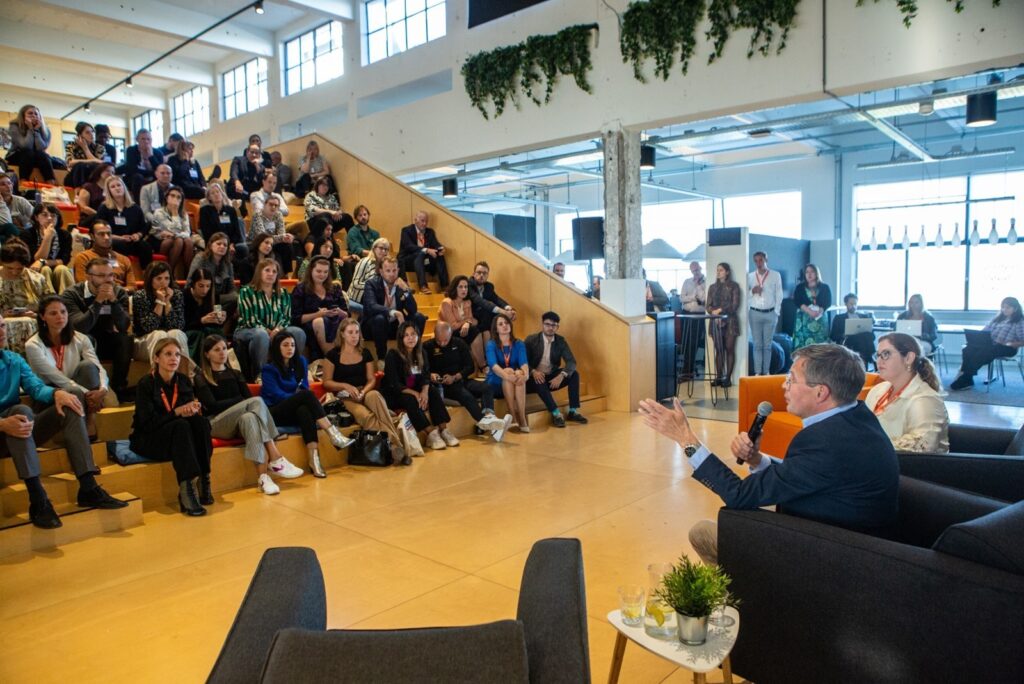The role of universities in achieving the SDGs
At a recent Studyportals Academy event, Professor Doctor Jan Peter Balkenende, Prime Minister of the Netherlands from 2002 to 2010 spoke to Cara Skikne, Senior Editor at Studyportals. The focus of the interview was the achievement of the 17 Sustainable Development Goals (SDGs) set by the United Nations.
Balkenende is deeply committed to the SDGs and believes in the importance of universities contributing to their achievement. He emphasises the need for a common agenda and collaboration among governments, businesses, universities, and civil society to address the challenges outlined in the SDGs. Throughout the conversation Balkenende shared the moments that have shaped his perspective, including his work on corporate responsibility, interactions with global leaders, and the importance of a broader view of world dynamics.
The 2030 Agenda for Sustainable Development, adopted by all United Nations Member States in 2015, provides a shared blueprint for peace and prosperity for people and our planet. At its core are the 17 SDGs: an urgent call for action by all countries – both developed and developing – in a global partnership. These goals recognize the interconnection between ending poverty, improving health and education, reducing inequality, fostering economic growth, addressing climate change, and preserving our oceans and forests.
The role of universities
During the discussion, Balkenende highlighted the importance of universities focusing on their core activities of education and research to make a meaningful impact on sustainability. He also stressed the need for innovation, the rule of law, and inclusive institutions as key elements for success in addressing global challenges. Universities need to recognise when they should proactively adapt their curricula, make changes to their teaching methodology, and adjust the way they conduct research. Balkenende also pointed out the slow pace of change in universities, citing the outdated literature given to economics students, an anomaly that needs to be addressed.
Further to focusing on their core activities, Balkenende discussed the role of universities in influencing policy decisions, and he emphasised the importance of having a common agenda and shared responsibility among the government, business, and academia. He acknowledges that “government is not the university, and the university is not business” but he underscores their significant common responsibilities, which, when recognized by all parties, can lead to impactful differences.
“Let us work together. Let us be creative. Let us bring forward new ideas and insights and new proposals” says Balkenende.
His heartfelt encouragement of universities to contribute to a higher goal, such as the SDGs, is not just about doing the right thing in terms of sustainability, it is also about the long-term financial benefits to universities, and the attracting of talented international students to universities in countries like the Netherlands.
There are big challenges to achieving SDGs, and among these challenges are the political and social environments within countries skeptical of SDGs – environments paramount to how universities will respond to calls for changes to their teaching and research. Balkenende uses his work with business schools in the US as an example: there is scepticism about SDGs in the US, and many American universities do not refer to the SDGs in their research and teaching. He mentioned that one of the most prominent US accreditation boards took out any reference to SDGs in their accreditation papers. When the largest economy in the world is not onboard, SDG achievement faces a significant obstacle. Here, Balkenende believes open discussion at a global level can go a long way to address hinderances. Also, for many talented young people who disagree with how their country approaches the SDGs, the allure of studying at universities in countries who are focused on SDGs could be strong – a great opportunity for those countries focusing on winning in the war for talent.
The Sustainable Development Goals: 
For more updates, follow us!






